How Much Water to Bring When Camping: A Comprehensive Guide
Camping is a fun and popular summer activity, but it’s important to be prepared for all of the potential challenges that may come your way. One of the first things to think about is how much water you will require. This comprehensive guide will answer all of your questions, including tips on how to conserve water while still having a great time!
What’s the Ideal Amount of Water per Person to Bring Camping?
The truth is, there is no definitive answer to this question. It all depends on a variety of factors, such as the climate, the type of activities you’ll be doing, and the quantity of water you usually consume on a daily basis.
That being said, a general guideline is to bring at least one gallon (four liters) of water per person per day.
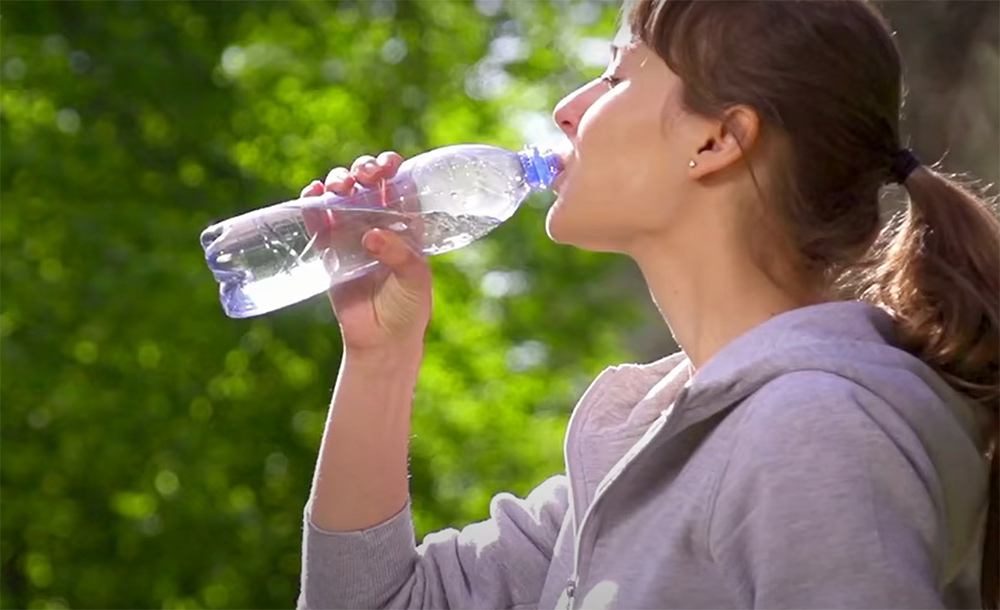
Of course, if you know that you’ll be spending most of your time outdoors in hot weather or engaging in strenuous activities, then you might want to increase your intake and bring more.
It’s also worth mentioning that you should always have more water on hand than you think you’ll need.
Now let’s move on to some tips for making sure that your supply lasts.
Here are a few things to keep in mind:
- Drink regularly throughout the day, even if you don’t feel thirsty. This will help prevent dehydration before it sets in.
- Avoid drinking caffeinated beverages, as they can actually contribute to dehydration. Stick to water or fruit juice instead.
- If you’re sweating a lot, replenish your electrolytes by drinking sports drinks or eating foods that are high in potassium, such as bananas.
- Fill up your water bottle or CamelBak before heading out for a hike or other outdoor activity. This way, you won’t have to ration your water if you get lost or end up spending more time out than anticipated.
Water for Drinking While Camping
You’re going to want to bring enough water for every person in your group to drink at least a gallon per day. It is advisable to have a sufficient quantity of water in your home. You will need more if the heat, humidity, and physical activity level are high.
To be safe, plan on bringing an extra 1/2 gallon p/person, p/day.
What Is the Appropriate Amount of Water for a Child?
Children over the age of four should drink at least a 1/2 cup of water every 20 min while participating in strenuous activity.
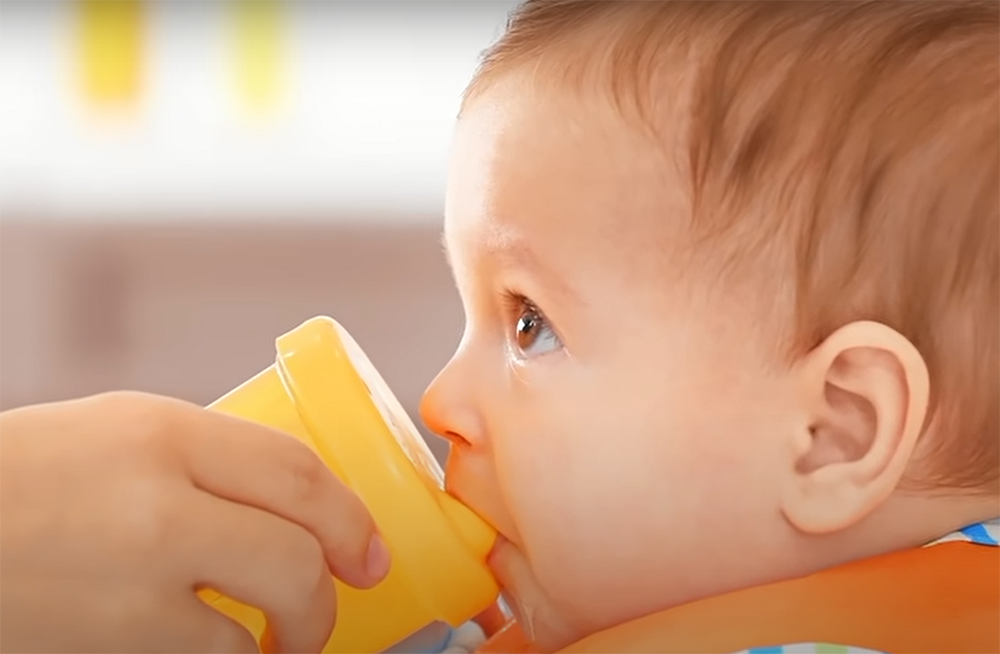
Plan on bringing twice as much water for children as you would for adults simply to be safe.
How Much Water Does an Adult Need?
The recommended amount of water for adults is eight to ten cups per day, and this should be increased if you are hiking or doing any other strenuous activities. It is also important to have some extra water on hand in case of emergencies.
A water filter is another approach to make sure you have enough water. This way, you can purify any water sources that you come across while camping. There are many different types of water filters available on the market, so do some research to find one that suits your needs.
Another option is to pack some powdered sports drinks mix.
When does one become an adult in the world of dehydration?
On a hot day, you might drink four liters of water. You’re probably an adult if you can drink three to four liters of water in a day. If you can only handle two, you might be a child or elderly person.
Dehydration is serious stuff. It claims the lives of more than a million children under the age of five each year. In fact, it’s responsible for more deaths than HIV/AIDS and malaria combined.
The quantity of water you’ll need while camping depends on many factors, including the temperature, humidity, and activity level. Here are some general guidelines:
- In hot weather (above 90 degrees Fahrenheit), 1 gallon of water p/person, p/day.
- In moderate weather (60-90 degrees Fahrenheit), 2 to 3 quarts of water p/person, p/day.
- In cold weather (below 60 degrees Fahrenheit), 1 quart of water p/person, p/day.
Now let’s talk about storing it. The best way to store water is in food-grade containers like these:
- Water bottle with a screw-on lid
- Collapsible water container
- Water bladder (like this one)
You should also have a plan for purifying water in case you run out or your water gets contaminated. Boiling is the simplest and most reliable way to purify water. You can also use a portable filter or purifier like this one:
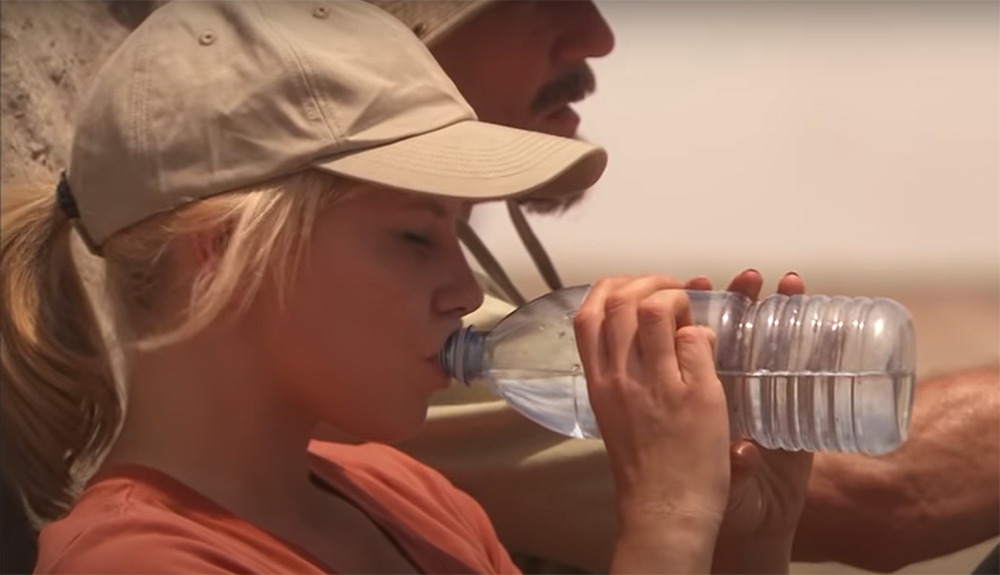
- Portable Water Filter
- Portable Water Purifier
Remember, when it comes to dehydration, it’s better to be safe than sorry. So take these guidelines seriously and plan accordingly.
How Much Water for Dogs?
Dogs need more water than humans, so it’s important to make sure they have enough to drink when you’re camping. Bring 1 gallon of water per day for each dog, as a general rule.
If you’re planning on doing a lot of hiking with your dog, you may want to pack even more water. Hiking can be strenuous, and dogs can get dehydrated quickly. If you think your dog will be doing a lot of activity, pack 2 gallons of water p/day.
Another thing to keep in mind is that dogs often drink more when it’s hot outside. If it’s going to be a warm day, make sure you have extra water on hand in case your dog gets thirsty.
Water for Cooking and Cleaning
You’ll need enough water for all of your bases when camping. It’s always better to err on the side of bringing too much rather than not enough.
If you’re going camping to cook, you’ll need significantly more water. Bring an additional 1/2 gallon p/person for cooking and cleaning purposes. So, if you have a group of four people, you should plan on bringing 2 gallons of water just for cooking and cleaning each day.
Water for Personal Hygiene While Camping
No one wants to be the smelly camper. In addition to the water you’ll need for drinking, cooking, and washing dishes, bring enough water for personal hygiene. This includes brushing your teeth, bathing, and washing your hands.
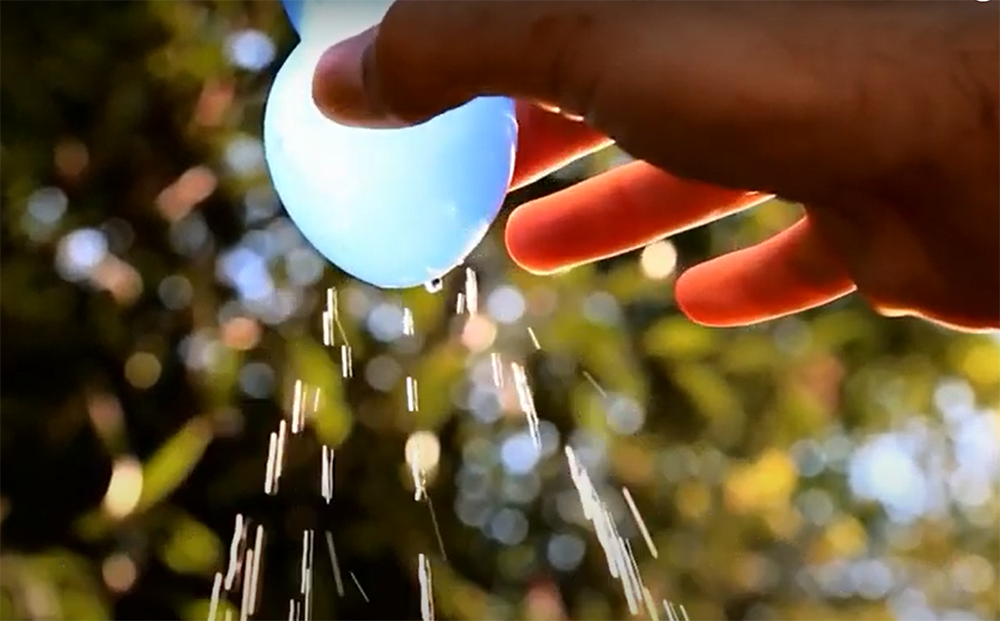
If you’re planning on doing any swimming while camping, you’ll need even more water to rinse off afterwards. Bring a couple extra bottles or gallons just for this purpose. It’s also important to remember that if you get sweaty or dirty during the day, you’ll want to have some clean water available to wash up before bedtime.
There are a few ways to conserve water while camping. One is to only bathe every other day. Another is to use a “bucket shower.” This involves filling a large bucket with water and using a small cup or pitcher to pour the water over yourself while you soap up. Then, turn the bucket over your head to rinse off.
How Much Water Should I Carry While Backpacking?
This is probably the most frequently asked question when it comes to water and camping. The answer, unfortunately, is not as straightforward as we would like it to be. It really depends on a number of factors, including the length of your trip, the climate you’re hiking in, and your own personal water needs.
Generally, you will need 1 liter of water for every 2 hours of hiking. So, if you’re planning on a 12-hour hike, you should bring at least six liters of water.
You may need to drink more water than usual if the weather is extremely hot because you won’t be able to sweat as much. Likewise, if you’re hiking at high altitudes, you may need to drink more water to prevent altitude sickness. The best way to know the quantity of water YOU specifically need is to experiment on shorter hikes first and see how your body responds.
Do I Need a Water Purifier?
One common question we get is whether or not you need a water purifier when camping. The answer to this really depends on the area you’re camping in and the quality of the water there. If you’re unsure about the quality of the water, it’s always better to err on the side of caution and bring a purifier.
There are two main types of water purifiers: chemical and mechanical. Chemical purifiers use iodine or chlorine tablets to kill bacteria, while mechanical purifiers use filters to remove bacteria from water. Both types are effective, but mechanical purifiers tend to be more popular because they don’t change the taste of the water as much as chemical purifiers do.
If you decide to go with a chemical purifier, make sure to follow the instructions carefully. Iodine tablets can take up to four hours to work, so it’s important to plan ahead if you’re going to use them.
Potential Water Sources
One of the first things you should do when planning your water needs for a camping trip is to check for potential water sources near your campsite. If there is a river, lake, or stream nearby, you will want to take advantage of that and bring less water with you. You can also collect rainwater if it is forecasted to rain during your trip.
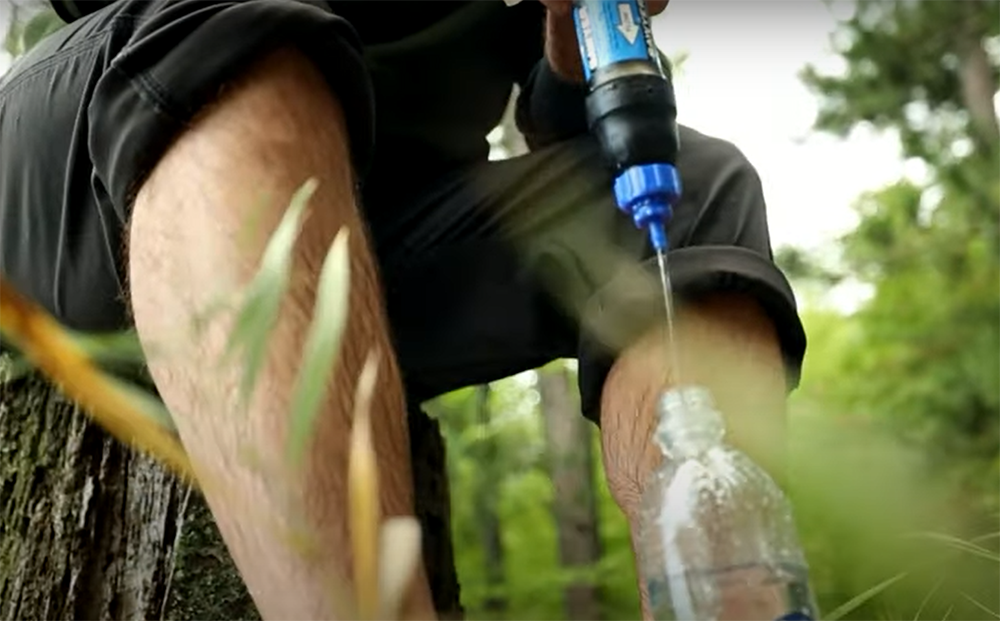
Finally, think about how active you will be during your camping trip.
Dehydration and Camping: What You Need to Know
Dehydration is no joke, and it can sneak up on you quickly when you’re camping. Symptoms of dehydration include dizziness, headache, lightheadedness, confusion, irritability, fatigue, and fainting. If you experience any of these symptoms while camping, it’s important to drink more water and seek medical attention if necessary.
Dehydration can also lead to serious health complications like heat stroke or kidney stones, so it’s important to stay hydrated while camping. The best way to avoid dehydration is to drink plenty of water throughout the day and keep an eye on your urine output. If your urine is dark yellow or orange, you’re already dehydrated and need to drink more water. [1]
How Much Water is Too Much Water to Bring Camping?
You don’t want to use too much water since it will be cumbersome and difficult to haul. However, you also don’t want to bring too little water and risk dehydration.
It’s always a good idea to carry 1 gallon of water per person, p/day. This will guarantee that everyone has an adequate supply of water during the day.
Why do I Need to Bring so Much Water Camping?
The solution is straightforward: your body requires water to function properly, and there’s no assurance that you’ll have access to fresh drinking water in the outdoors.
Water is essential for survival, and while you might not need as much as someone who is hiking or backpacking through the desert. Dehydration can cause headaches, fatigue, and other problems that can ruin your camping trip. [2]
How Much Water is Necessary to Bring For Day Hikes?
It really depends on the person, but at least a liter of water for every two hours you’ll be hiking. If it’s particularly hot out or if you know you’ll be exerting yourself more than usual, err on the side of bringing more rather than less. And of course, if you have access to extra water along the way (like from a stream), then you can always adjust accordingly.
Another thing to keep in mind is that you don’t necessarily need to drink all of your water in one go. It’s often helpful to have small sips throughout the hike so that you stay hydrated without feeling weighed down by all the water at once. Plus, then you’ll have some leftovers in case of emergencies. [3]
Finally, if you’re hiking with a group, it’s always a good idea to have an extra water bottle or two on hand. That way, if someone runs out, you can share without putting yourself at risk.
FAQ
How much water should I bring on a backpacking trip?
Bring a minimum of 2 liters per person, p/day. However, if you’re trekking in hot weather or at a high altitude, you should bring more water.
It’s always better to err on the side of bringing too much rather than not enough. You can always filter and purify extra water if you don’t end up using it all.
Here are a few factors that will affect the quantity of water to bring:
- The number of miles you’ll cover on your excursion
- Levels of temperature and humidity
- Whether you’ll be camping near a natural water source
- Your physical activity level
- Your personal needs (e.g., if you sweat a lot or have a medical condition) [4]
If you’re still not sure about the quantity of water to bring, consider these tips:
- Bring at least 1 L of water for every 2 hours of hiking.
- In hot weather, you should drink about four liters (or one gallon) of water per day.
- If you’re hiking at a high altitude, you’ll need more water than usual. At altitudes over 12,000 feet (about three and a half kilometers), you should drink about five to six liters of water p/day.
- If you can’t find fresh water to drink on your hike, bring along a water filter or purification tablets. This way, you can safely drink from streams and lakes.
How do you carry water when camping?
There are a few different ways that you can carry water when camping. The most common method is to simply use a standard water bottle. You can also find speciality water bottles that are made to be easy to carry while hiking or camping. Additionally, you can use a hydration pack, which is basically a backpack with a built-in reservoir of water. Finally, if you’re car camping, you can just bring along some large containers of water and refill them as needed.
Another important consideration is how you’re going to purify the water that you find while camping. If you’re going to be near reliable sources of clean water, like rivers or lakes, then you can simply use a water filter or purification tablets. However, if you’re going to be in an area with questionable water sources, you should bring along a portable water purifier. [5]
How many gallons does a person use per day?
The average person uses about 80-100 gallons of water p/day. However, most of this is used for things like flushing the toilet and showering. When you’re camping, you won’t be doing much of either of those things. You must also consider drinking, cooking, and cleaning.
If you’re planning on doing any strenuous activity while you’re camping, like hiking or biking, you’ll need to increase that amount. For every hour of strenuous activity, you should add an additional quart (32 ounces) of water to your daily total. [6]
Useful Video: This Is How Much Water You Need For Camping (It May Surprise You!)
Conclusion
In conclusion, the amount of water for camping really depends on a variety of factors. By taking into account things like the climate, your physical activity level, and how much food you’re bringing, you can make sure that you have enough water to last throughout your entire trip. And remember, it’s always better to err on the side of caution when it comes to packing water – after all, you can always drink less, but you can’t drink more if you run out!
References:
- https://outforia.com/how-much-water-should-i-bring-camping/
- https://decideoutside.com/how-much-water-do-i-need-to-bring-while-car-camping/
- https://momgoescamping.com/how-much-water-to-bring-hiking/
- https://intothebackcountryguides.com/backpacking-skills/when-backpacking-how-much-water-should-i-carry
- https://expertworldtravel.com/how-carry-water-hiking/
- https://water.phila.gov/pool/files/home-water-use-ig5.pdf

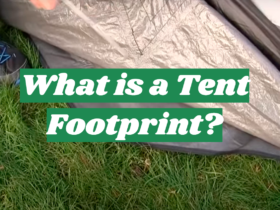

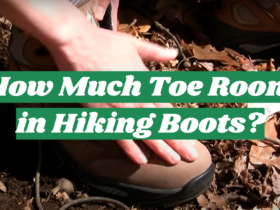

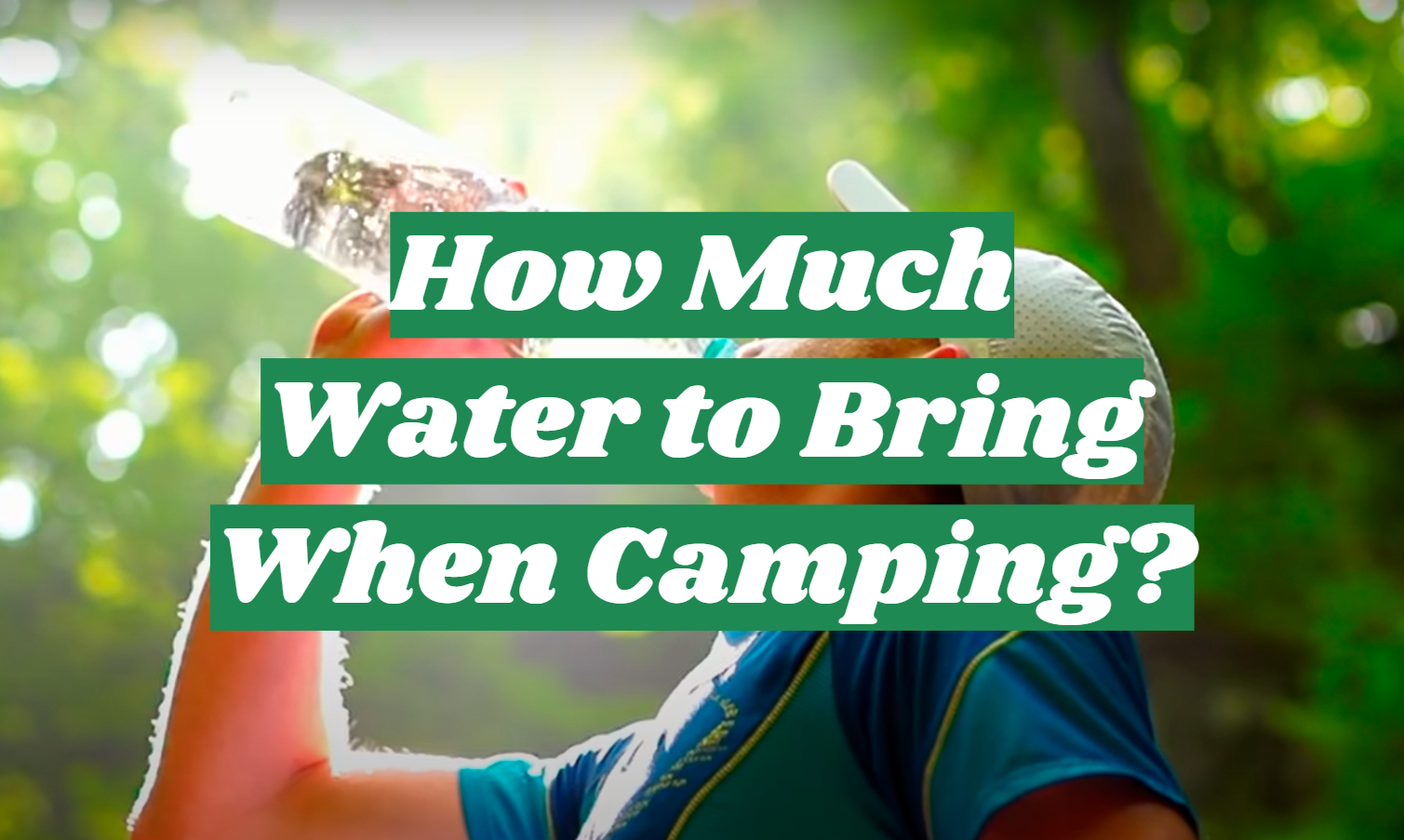

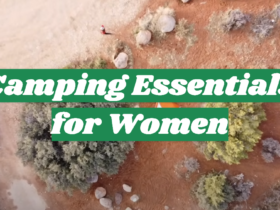

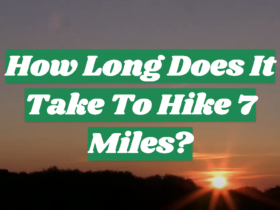
Leave a Review